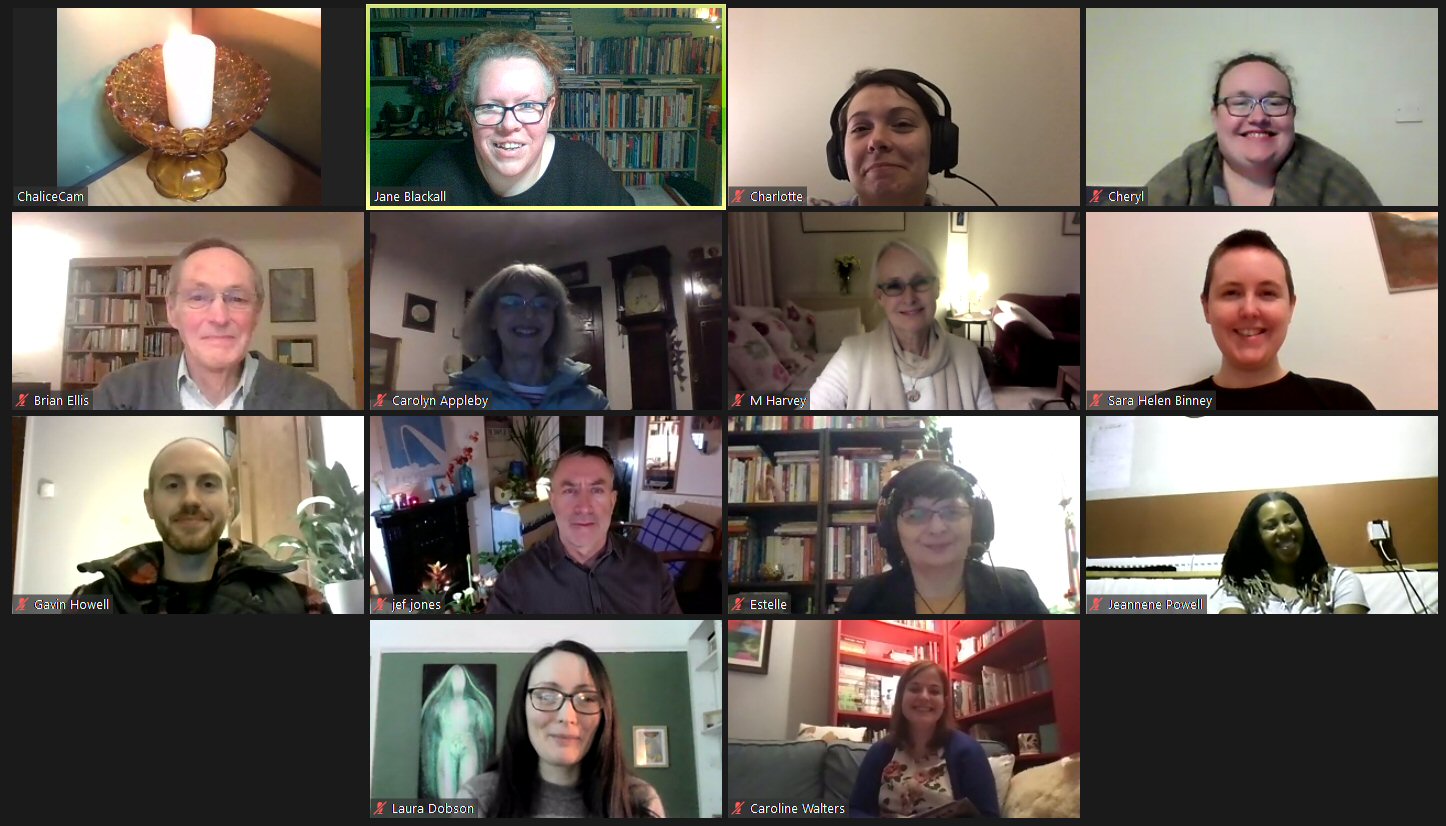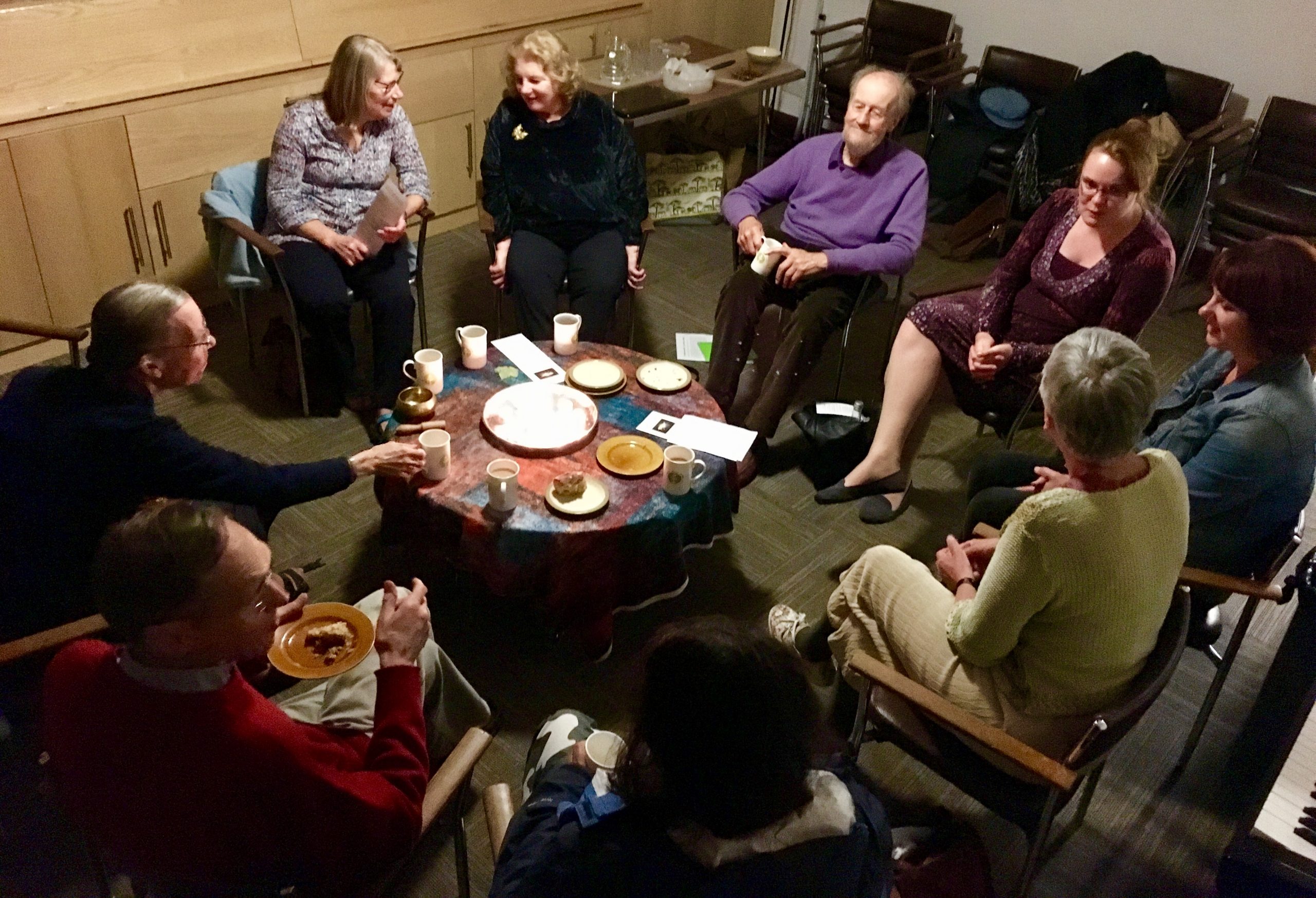

Heart and Soul gatherings typically follow a standard pattern which centres on an extended time of prayer and reflection. Each session usually has a set theme, chosen by the leader, perhaps to connect with the time of year, a significant festival, or other local events, or maybe some more general theme that speaks to our shared human condition. Typically there will be a printed running order so that everybody knows what to expect and you can follow where you are in the proceedings.
The gathering will typically open with some music to enable us to settle down, some opening words to set the tone and introduce the theme, and a chalice lighting (a symbolic act of lighting a candle which connects all Unitarian communities). This may be followed by a short reading, potentially from any source, to get us thinking more deeply about the theme.
The central time of prayer and reflection is the heart of a Heart and Soul gathering. The leader will guide everyone through prayers of ‘naming’, ‘knowing’, ‘listening’ and ‘loving’ (inspired by the work of Erik Walker Wikstrom) and invite everyone to reflect on their lives in a contemplative manner. There will be opportunities for everyone to say just a few words to give thanks for something in their lives and to express loving concern and compassionate wishes for something in the world (but nobody is pressured to speak if they would rather not). This time of quiet reflection may easily take up half of the hour-long session.
After the time of prayer there is usually some more music to take us back to reflection on the theme. There may be another reading offered, or a selection of short quotes, to bring in different perspectives on the topic. Then the leader will say a few words to introduce a time for those present to share their own perspectives. At this point there is usually just 10-15 minutes left. Typically a ‘talking stick’ of some sort will be used to help remind everyone that it’s not a regular conversation – one person (the one holding the ‘talking stick’) speaks at a time and we should not comment, judge, or try to ‘fix’ each other when it’s our turn – and everyone should have a chance to contribute before anyone speaks into the circle for a second time.
At the end of the hour there will be some closing words and usually some closing music. Just as essential as the contemplative hour is the time for refreshments and conversation that follows. It really adds to the experience if you pay attention to the quality of hospitality and offer home-made cake or something a bit special to show that you care.